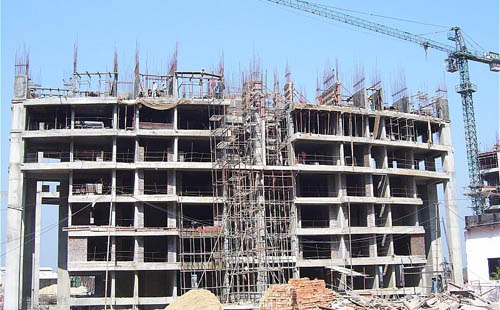
Will the realty regulator finally become reality?
For the last four years everyone within the built environment of Indian real estate, homebuyers included, wanted a real estate regulator but the consensus eluded.

For the last four years everyone within the built environment of Indian real estate, homebuyers included, wanted a real estate regulator but the consensus eluded.

To say that the year 2015 has not been very excisiting for the real estate market across the Mumbai Metropolitan Region (MMR) would be stating the obvious. The slowdown in the macro-economy, wait & watch by the homebuyers in the property market, relatively higher cost of borrowing till late and fate of reforms oriented policies hanging in uncertainty all collectively dampenend the property market in India’s financial capital. Will the year 2016 be any different?

Today, the world sees India as a land of opportunity for business and investment. RBI head Raghuram Rajan said in mid-September that while fellow BRICs have deep problems, India appears to be an island of relative calm in an ocean of turmoil.

From being the governance wild child to maturing into a market influencer, India’s real-estate sector has transformed in the past decade, with a paradigm shift from family owned businesses to corporates along with a few companies listing on stock exchanges. The change began with the government opening doors to Foreign Direct Investment (FDI) in 2005 and then welcoming the next wave of stability as corporate houses brought image restoration for the sector. Led by corporate entities, realty companies soon adopted corporate governance wherein transparency began to trickle down into the system as a norm slowly.

Over 75 per cent of the total 3,540 live projects with total outstanding investments worth over Rs 14 lakh crore attracted by the real estate sector across India remained non-starter as of financial year 2014-15, noted a just-concluded study by apex industry body ASSOCHAM.

As the Modi Government completes its first year in office, there is no dearth of bouquets and brickbats for the NaMo regime in the media. On analysing the Modi government’s electoral assurances, the actions taken so far and the respective timelines being followed to achieve these, I would say that it is reasonably on track with fulfilling its short-term, medium-term and long-term promises.

Track2Realty Exclusive: The time of transition for the Indian real estate and construction sector has finally arrived. Since last few years, a number of regulations pertaining to the real estate market were put on hold. A number of them are now at the draft stage waiting for Parliament’s approvals.

Track2Realty: The economic growth rates in Asia are likely to lead the world—creating demand for built spaces, triggering business expansion, and inducing businesses to occupy retail premises and office properties.

Track2Realty: Reams of newsprint have been dedicated to discussing the sufferings of consumers in the Indian real estate sector. Particularly, homebuyers’ woes related to late delivery of projects, deviation of housing projects from promised quality, additional payments due to change in apartment area and inadequate protection of their rights have been well-documented.

Track2Realty Exclusive: Perhaps no other segment of Indian real estate would have taken as much beating as the retail one. With consumerism down due to overall slowdown in the economy, e-commerce emerging big to challenge the malls and the high streets back with innovations, it seems the mall developers had abosiltely no idea as to how to deal with the emerging market realities. Track2Realty Focus 2015 takes a look at how the promising retail in India could not benefit retail realty in its performance.
